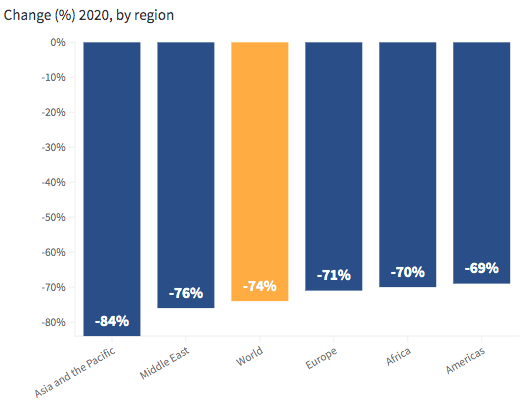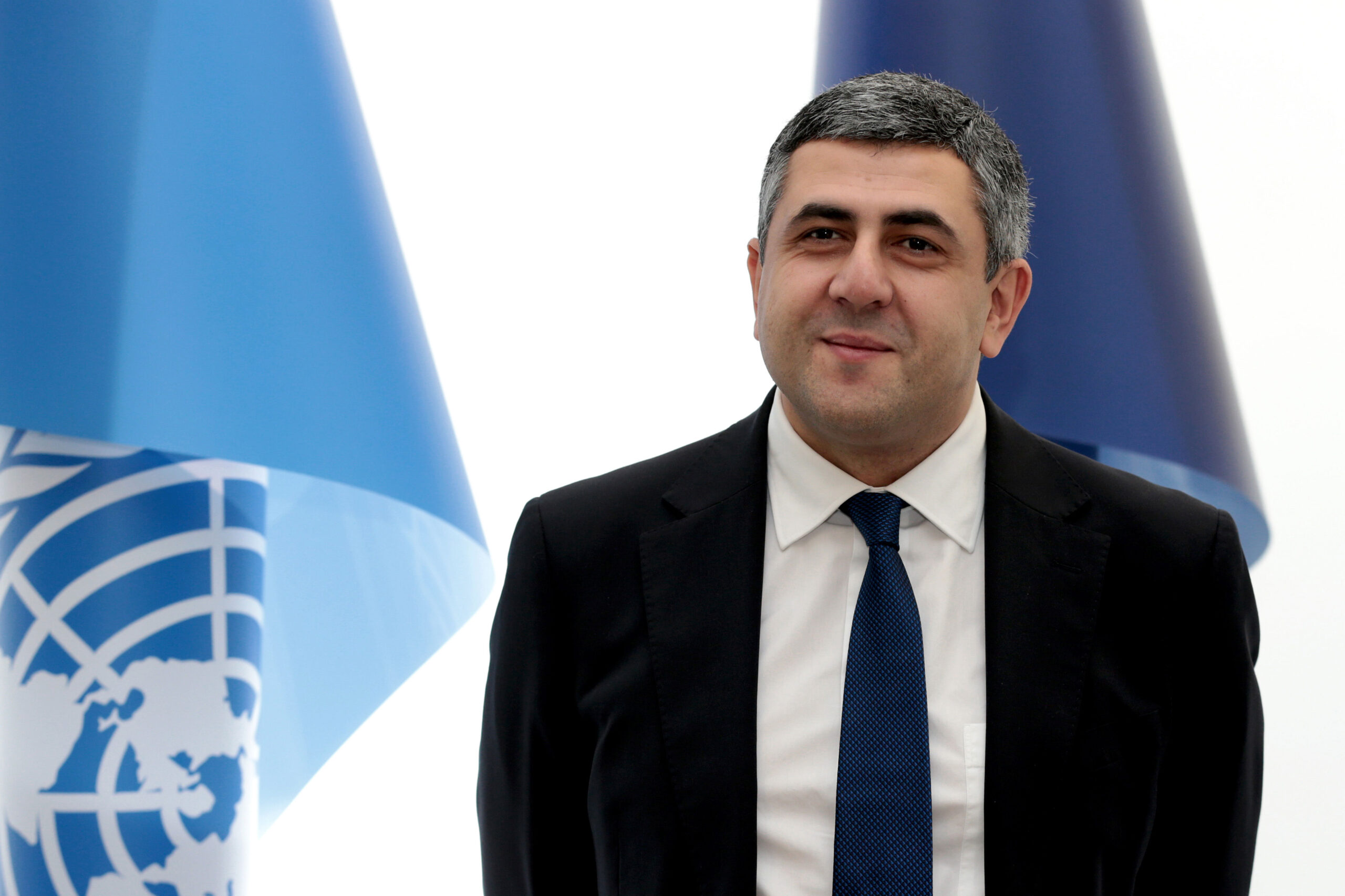INTERNATIONAL. Global tourism suffered its worst year on record in 2020, with international arrivals dropping by -74% year-on-year according to the latest data from the World Tourism Organization (UNWTO).
Destinations worldwide welcomed 1 billion fewer international arrivals in 2020 than in the previous year due to the COVID-19 crisis, the related fall in demand and widespread travel restrictions. This compares with the -4% decline recorded during the 2009 global economic crisis.

Asia and the Pacific (-84%) – the first region to suffer the impact of the pandemic and the one with the highest level of travel restrictions currently in place – recorded the largest decrease in arrivals in 2020 (300 million fewer). The Middle East and Africa both recorded a -75% decline.
Europe recorded a -70% decrease in arrivals, despite a brief revival in the Summer of 2020. The region suffered the largest drop in absolute terms, with over 500 million fewer international tourists in 2020. The Americas saw a -69% decrease in international arrivals, following slightly improved results in the last quarter of the year.

According to the latest UNWTO World Tourism Barometer, the collapse in international travel represents an estimated loss of US$1.3 trillion in export revenues – more than 11 times the loss recorded during the 2009 global economic crisis. The crisis has put between 100 and 120 million direct tourism jobs at risk, many of them in small and medium-sized enterprises, according to the UN agency.
UNWTO Secretary-General Zurab Pololikashvili said: “While much has been made in making safe international travel a possibility, we are aware that the crisis is far from over. The harmonisation, coordination and digitalisation of COVID-19 travel-related risk reduction measures, including testing, tracing and vaccination certificates, are essential foundations to promote safe travel and prepare for the recovery of tourism once conditions allow.”
The latest UNWTO Panel of Experts survey shows a mixed outlook for 2021. Almost half of respondents (45%) envisaged better prospects for 2021 compared to last year, while 25% expect a similar performance and 30% foresee a worsening of results in 2021.
The overall prospects of a rebound in 2021 seem to have worsened, noted UNWTO. Some 50% of respondents now expect a rebound to occur only in 2022 as compared to 21% in October 2020. The remaining half of respondents still see a potential rebound in 2021, though below the expectations shown in the October 2020 survey (79% expected recovery in 2021). Once tourism does restart, the UNWTO Panel of Experts foresee growing demand for open-air and nature-based tourism activities, with domestic tourism and ‘slow travel’ experiences gaining increasing interest.
Looking further ahead, most experts do not to see a return to pre-pandemic levels happening before 2023. 43% of respondents point to 2023, while 41% expect a return to 2019 levels will only happen in 2024 or later. UNWTO’s extended scenarios for 2021-2024 indicate that it could take two-and-a-half to four years for international tourism to return to 2019 levels.













